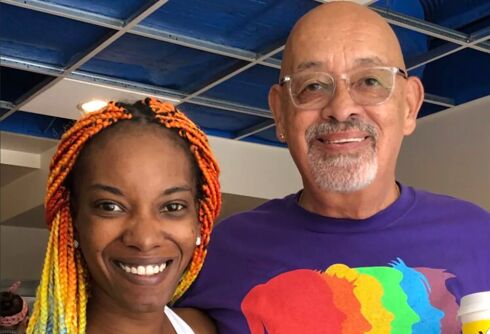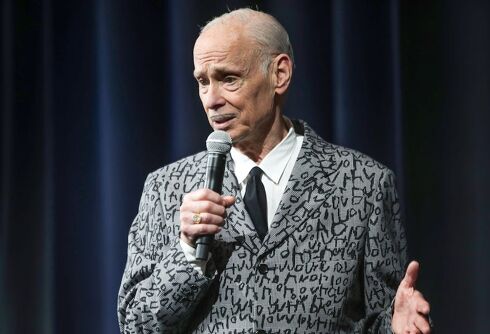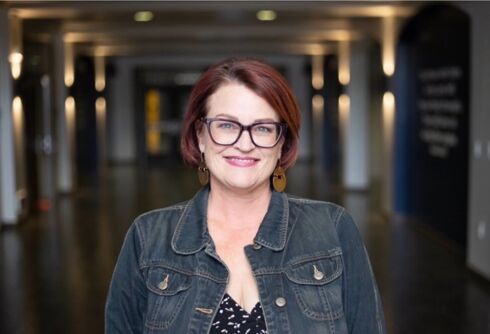SHEFFIELD, England — In a study released this week to coincide with Britain’s National Anti-Bullying Week, researchers from the Centre for Education and Inclusion Research at Sheffield Hallam University have revealed that many schools in the United Kingdom fail to properly address homophobic bullying.
 The report, Tackling Homophobia and Transphobia In Settings Supporting Young People, was based on interviews conducted with students, teachers and youth workers about their experiences in South Yorkshire, UK.
The report, Tackling Homophobia and Transphobia In Settings Supporting Young People, was based on interviews conducted with students, teachers and youth workers about their experiences in South Yorkshire, UK.
In particular, young people questioned for the report claimed that homophobic bullying was not always dealt with effectively by schools. Lesbian, gay, bisexual and transgender (LGBT) students have described how schools are not effectively tackling homophobic bullying and in some cases are perpetuating a hostile culture where students feel isolated.
The research found that LGBT young people appeared to expect, or even accept, the bullying they experienced and also reported mental health problems impacted on school attainment and attendance.
Never Miss a Beat
Subscribe to our newsletter to stay ahead of the latest LGBTQ+ political news and insights.
One youth worker said, “The impact that being gay and being out and being bullied has on young people’s mental health is colossal. The amount of mental health issues in that group that we know about is immense, the ones we don’t know about make me shudder.”
Lead researcher and the study’s author, Eleanor Formby, writes about incidents such as separate changing rooms for LGBT pupils:
“I don’t think telling pupils who have ‘come out’ to get changed separately is official policy, but I fear that it may be routine practice in some schools and could lead to homophobia being normalised,” she said. “Students at more than one school reported being required to dress out for physical education in toilets and in other rooms located near to the regular changing facilities.”
“Perhaps not surprisingly, this made them feel singled out and excluded, and contributed to some not attending PE and/or school. When one group member had complained about this practice they had been told they were ‘causing a fuss’, whilst another in a different school was told it was for ‘their own safety’,” Formby said.
The questionnaire and follow-up interviews with LGBTQ students revealed that many of them felt professionals did not properly grasp how significant the issue is, with staff in some schools using homophobic language themselves.
Some students also reported school policies that isolated LGBT young people. The research suggests the importance of management support for staff working to raise awareness about sexuality issues in school and youth work organizations.
The study also found there was only a “patchy inclusion of LGBT matters” within Britain’s schools. Issues pertaining to LGBTQ students were most likely to be addressed in personal, social, or health education classes.
Formby reported that the contrast between the “invisibility within formal curriculum and the visibility of homosexuality within informal contexts was stark”. Some staff interviewed stated for example that LGBT issues were “only of interest to LGBT young people and therefore relevance was limited.”
School personnel responded that there were barriers to delivering education about LGBT issues in school, indicating there were “much more important things” to be taught.
Others described embarrassment about talking about sex more generally, while some had anxieties about “turning” young people gay by educating them about same sex relationships. Some said they feared backlashes from religious community leaders and parents.
A gap in expertise and confidence was also cited as a barrier to supporting students to learn about LGBT issues.
“Staff often want to be able to tackle issues dealing with sexuality, but are often unaware of or unable to access training or resources that are on offer so they can deal with these issues appropriately and effectively,” Formby said.
“This study suggests that whilst many young people and staff strongly believe in equality for LGBT groups, there is still a clear view among some that same-sex relationships are ‘different’, ‘unnatural’, ‘unfamiliar’ and therefore wrong,” Formby said. “It is concerning to me that young LGBT people may still face these attitudes from both their peers and professionals who ostensibly should be working towards supporting and safeguarding their wellbeing.”













